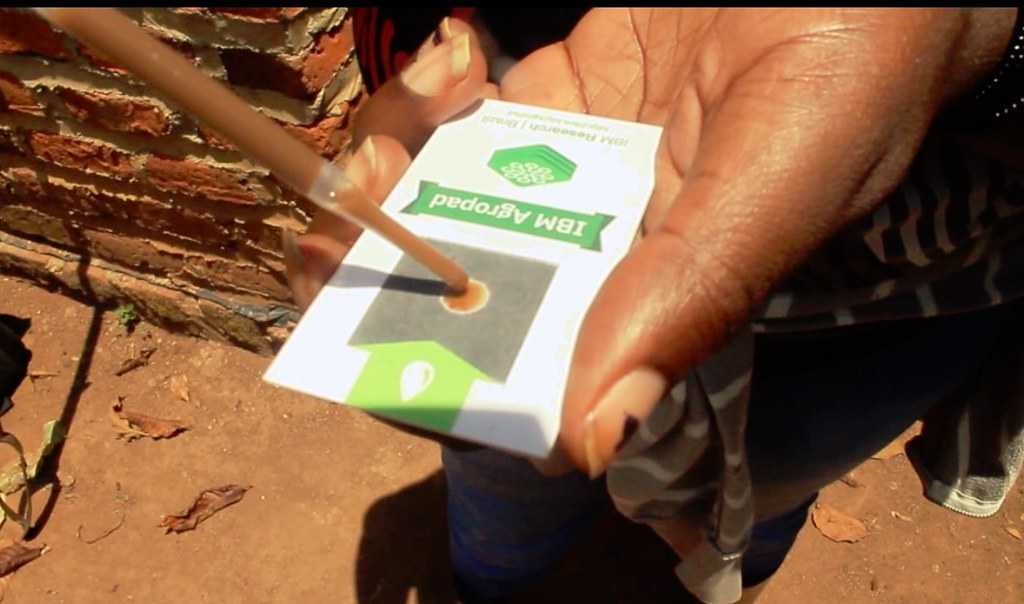MILAN – A smart, AI-powered paper device the size of a business card dubbed the IBM AgroPad can remotely and quickly analyze soil samples for chemical composition – and could help smallholder coffee farmers save money and improve sustainability. Knowing what’s in their soil could allow farmers better manage their water and fertilizer use to maximize crop production.
Developed by IBM Research, the AgroPad is now being tested in the real world – after the tech company signed a pilot with Enveritas, a US non-profit organization that aims to bring sustainable practices for the economic and social development of coffee farmers around the world.
Just a drop of water or a pea-size amount of soil placed on the device is enough to perform on-the-spot chemical analysis. Within 10 seconds, a microfluidics chip inside the card provides an output. Circles of different colors appear on the back of the card, assessing the pH and giving the levels of nitrite, aluminum, magnesium and chloride in the sample.
The farmer can then use a dedicated smartphone app to take a picture of the card. Then the AI gets to work – and within seconds, gives detailed results of the chemical analysis, as well as information about the location from which the sample had been collected. The test results, including location and time stamp, can then be uploaded by the user to the IBM Cloud for further analysis.
Enveritas works with about 100,000 farms in Latin America and Africa, and together with IBM has already performed initial tests of AgroPad earlier this year at small rural properties in Uganda. Field tests are currently underway in Rio de Janeiro and São Paulo in Brazil.
The aim is to help reduce global poverty in the coffee sector by 2030 and improve the access of smallholder farmers to high-value markets for sustainable coffee.
“They are excluded, not necessarily because their practices fall short of sustainability standards, but because access to validation practices for their activities is more challenging,” said Enveritas’ Chief Executive Officer David Browning. “Their farms are smaller, they are not organized into groups, their supplies are not consistently aggregated, and they live in hard-to-reach places in countries in Africa, Asia, Central and South America.”
The typical coffee grower served by Enveritas has less than two hectares of land, lives on less than US$ 2 a day and relies on cash crops for their family’s income. To help these producers, Enveritas has developed 30 different standards that use technology to measure sustainability at a much lower cost than other certifications and offer sustainability verification for smallholder farmers for free.
The results of joint field tests conducted with AgroPad could be added to the set of metrics already used by Enveritas for verification of sustainability practices, ranging from the analysis of satellite images to machine learning to search for deforestation points. This information will allow to better analyze the sustainability results in a local context, helping producers and buyers to collaborate more efficiently and improving trade practices.
IBM and Enveritas aim to better understand the environment where AgroPad could be used and its potential future users, and to develop educational material to help them. “We intend to prove the operation of AgroPad for these small coffee producers and get investors who could take the product to all the farms we have visited – which is more than 100,000 rural properties in the last two years,” said Browning. “We want to show the importance of joining research with field work and proving the potential benefits that this joint collaboration can bring to the socioeconomic development of these farmers.”


















